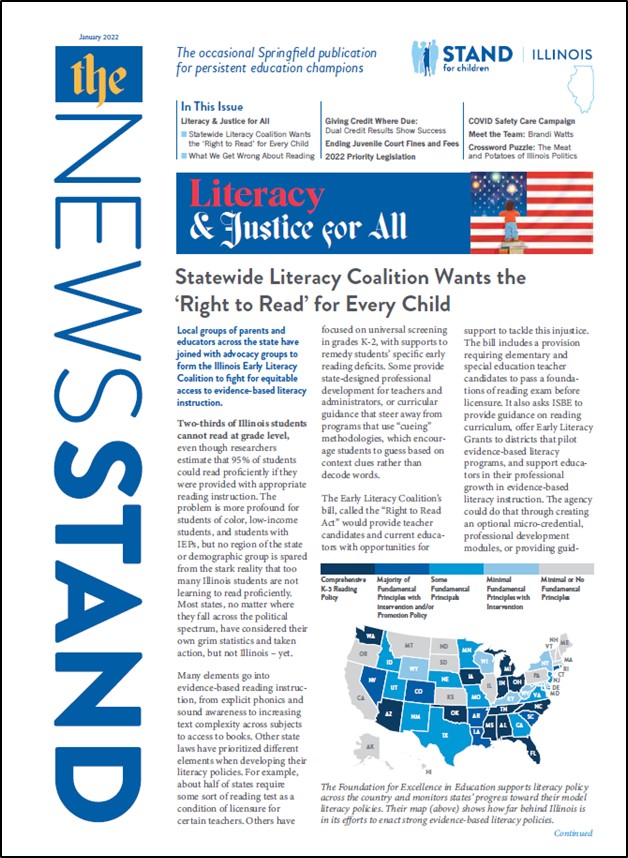
Download the full News Stand edition as a PDF.
See the crossword answers here.
—
2022 Priority Legislation
ADEQUATE AND EQUITABLE FUNDING SPENT WISELY
The Evidence-Based Funding Formula enacted in 2017 established a minimum funding goal of adding $350 million in new funds each year until adequate funding is reached. The State Board of Education has requested this increase in its FY2023 budget recommendation, and it is now up to the legislature to ensure these much-needed funds are allocated. Although full funding remains a long way away, the targeted distribution methodology in the Evidence-Based Funding Formula has raised the floor significantly for the most underfunded districts.
EARLY LITERACY
The Illinois Right to Read Act, SB3900 (Lightford), addresses the fact that two-thirds of Illinois students read below grade level and most other states have enacted comprehensive literacy laws to improve outcomes. This bill would require preservice teachers to demonstrate knowledge of the foundations of reading before earning their license. The State Board of Education would also support districts to move toward evidence-based literacy curriculum and professional development.
HIGH SCHOOL SUCCESS
This bill revises the Dual Credit Quality Act to boost the Dual Credit teacher pipeline through secondary and post-secondary partnerships, pave the way for Career and Technical Education (CTE) teachers to benefit from those partnerships, and allow mixed enrollment classrooms granting districts more flexibility.
HR582 (West) tasks the P-20 Council with studying the current CTE funding and governance structures to maximize collaboration among secondary, higher education, and employer partners and bring equitable access and opportunity to all.
YOUTH JUSTICE
SB3621 (Peters) prohibits courts from imposing court fees and fines on juveniles, which can have long-term detrimental impact on their rehabilitation efforts. The fees and fines are unrelated to victim’s restitution and do not help victims of crime. Instead, they result in minimal revenue, the process contributes to bureaucratic bloat, and they place dire financial strains on families. These fines and fees are racially discriminatory, undermine youth success, and can create barriers to successfully complete court ordered obligations.





